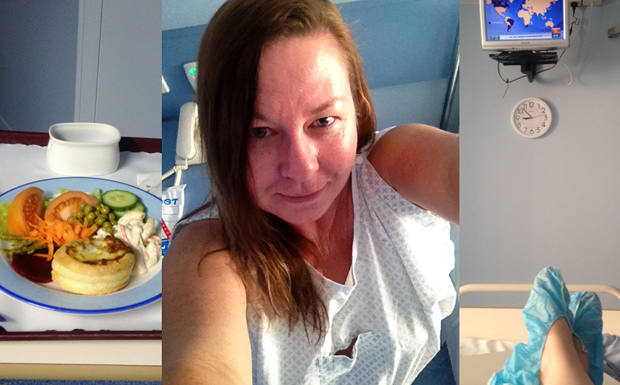
May 28, 2015
This week I found myself one of a rare breed: a South Burnett local who was able to have an operation in our region rather than having to travel to Brisbane or Toowoomba.
My particular condition was discovered, after months of painful symptoms, during a routine check-up in Brisbane last week.
On this occasion I was fortunate that my gynaecologist was able to fit me in for surgery in Kingaroy a few days later.
That meant I did not have to travel to the city for treatment. And I didn’t have to factor in extra days needed to stay away to recover enough to travel back to my home after the pain and anaesthetic had worn off.
Importantly, the fact that I could still have my surgery done in Kingaroy meant I was utilising staff and equipment that was already here.
But what is going to happen when the South Burnett Private Hospital closes shortly, as looks increasingly likely?
The precarious state of my health has meant that in recent years I’ve had the dubious pleasure of enduring many surgical procedures for a variety of usually-related conditions.
On a few occasions I’ve also been a bystander or supporter, as a mum or a friend, for others.
Most procedures these days are on a day surgery basis, although some have required overnight or slightly longer stays in hospital.
Because I lived in Brisbane before relocating to the South Burnett and have had very similar procedures done in posher city hospitals, I’m in a unique position to compare the service I’ve received in the past to the experience I received at the South Burnett Private Hospital in Kingaroy this week.
As it stands, the South Burnett Private Hospital is not as luxurious, modern, or as comfortable as private hospitals or day surgery facilities I’ve used in the past. Externally at least. The theatre, I’m told, is every bit as good as anything you would find in the city and the staff are just as well trained and equipped to cope with procedures and emergencies.
But I do not mean this is as a criticism. In fact, the South Burnett experience has much to recommend it.
As in so many cases, it’s the little things you don’t get in the city that really make a difference …
Being dropped at the door on the day of the procedure.
Not needing to find or pay for exorbitantly priced parking or negotiate your way through a rabbit-warren of corridors to the right desk on the right floor.
Check in takes seconds (no taking a number or going through various rooms to wait before your procedure eventually takes place).
Instead, on surgery day in Kingaroy, I’m warmly welcomed by a member of staff I’ve talked to before, and shown personally to my own private room to wait for my operation.
My own private room!
In the city, surgical procedure patients – regardless of whether they are staying overnight – are usually herded into one giant waiting room of humanity, where they wait for their names to be called.
And that’s just for the pre-op formalities, where you are taken into a room, your obs checked, made to say what you’re having done, and then sent back into the great unwashed to wait again.
There are usually only one or two toilets, shared between men and women.
This can be a problem when there are many patients and the procedures may include something like a colonoscopy, where the preparation makes a person need to go to the toilet suddenly and violently.
I still had a shared bathroom here. But it was between just two or us, and all very private.
I remember waiting in that giant city waiting room once, where after hours of fasting the reading material (‘MindFood’) and an ad for a nearby handmade chocolate shop almost did my head in, my name was finally called, only to see another Bronwyn rush forward before I could even put down my magazine.
Except she wasn’t the right Bronwyn. She had only arrived maybe 60 minutes previously.
I was pleased to see her returned to her seat, and to be given the chance to answer to my name instead.
Why they don’t use surnames is beyond me, because this isn’t the first time such a mix-up has happened, and it hasn’t always ended so happily.
Apparently some doctors and nurses feel obliged to then see that patient, even though they’ve leapt the queue, so to speak, leaving the original patient seething quietly in their corner.
Anyway, there was no such opportunity for mix-ups at the South Burnett Private Hospital because I had my own pre-op nurse assigned to me and she knew exactly when and where I would be required.
When the time came closer to my procedure, there was no tiny city-like cubicle for me to get changed into the theatre clothes on my own.
In city hospitals, these change-rooms are about the size of airplane toilets, and you have very little dignity as you try to remove clothes, package them in a paper bag, put on paper underpants, gowns, socks and knickers and then ring a bell – or was it open a door and wait patiently for someone to return? – when you are finished.
In Kingaroy, my nurse told me when to get changed and helped me put the unattractive tight socks on (they stop your blood from clotting).
It doesn’t help that they are ‘one size fit all’ and a bit long for height-challenged legs and feet.
I then got to wait on my bed and watch my choice of television until my name – this time for surgery – was called.
In Brisbane, by contrast, you’re taken to a kind of departure lounge for surgical patients.
Each patient has a reclining chair, and is usually given a nice warm blanket to preserve their modesty and improve their comfort.
There’s a giant flat-screen TV on the wall – but everyone has to watch the same channel – and a mix of magazines to read.
You can play on your phone but there’s no internet reception by that stage.
When it’s surgery time, you are put on a gurney and you go through all the basics again – name, age, what you are having done.
You are then wheeled through more seemingly endless corridors, sometimes to what is actually called a “holding room”, where you wait outside the real theatre until the surgeon and anaesthetist is ready.
Being single, I’m always on my own whenever I have anything medical done, and it’s usually around here that the nerves kick in.
It’s really impersonal, and you feel so alone.
Last time, the theatre nurse patted my arm and asked what I was afraid of, and I said it was waking up during surgery.
It’s something that has happened in the past, but not all anaesthetists take it seriously.
In that case, she asked the anaesthetist to reassure me just before surgery, but it was a little too late by then.
My blood pressure had shot sky high.
I’m sure it wasn’t helped by the fact that I’d had to drive myself from Kingaroy to Brisbane that morning, followed by the negotiation of said hospital corridors to find the check-in area, undergo fasting and then find I needed an ECG before surgery could commence.
I’m not asking for sympathy here.
I’m pointing out that anyone from rural areas has these challenges to face before they even go under a knife or submit to tests in the city.
So if facilities are available where they are living, why not fight to keep them available?
At Kingaroy, I had the dignity and control of being able to walk to the room next to the theatre.
And I didn’t have to leave early to get there, and a friend was able to drop me off.
My anxiety levels were still reasonably high, but nothing out of the ordinary.
My blood pressure remained in a fairly normal range too, and I’m sure it was because it I was as comfortable as I could before having someone poking around inside me.
Although I didn’t know any of the nurses, many locals would and they were friendly and kind.
I’d met the anaesthetist in the past – he’s not my doctor, but he’s well known and respected in the region and most people would have come across him at one stage or another.
He immediately put me at ease, promising that I wouldn’t wake up until after the operation.
And I trusted him, because I knew he wouldn’t fob me off. I knew that because we were both locals, and I wasn’t just a number to him.
Of course, there was my wonderful gynaecologist, who travels from Brisbane regularly to see dozens of women from the South Burnett each month, and perform operations that would otherwise have to be done in the city. I trusted him too.
I can’t see him in Kingaroy for all my appointments and procedures, but I see him here for every one that I can.
He is one of the best in his field, and the South Burnett are lucky to have someone of his calibre to practise here.
As we are many of the other specialists who practise out of the private hospital.
I trusted the support and nursing staff, too, because although it’s simplistic, they wouldn’t be working here if they didn’t already want to live in the South Burnett.
They have family, friends, houses and investments in the area.
They don’t want to be forced to move and leave everything they’ve worked for behind.
They genuinely care. Their careers in health are more than just jobs or a means to an end.
But I digress.
I was able to walk in and sit on the operating bed and the warming blanket was placed over me.
The anaesthetist began putting the drugs into my vein and, before I knew it, I was in recovery, apparently complaining I was in a fair bit of pain and wanting to go home to my own bed.
I can say that afterwards, the hospital bed wasn’t as comfortable, the room wasn’t as quiet, and the food wasn’t as nice as I would have received had I had my procedure at the hospital my specialist operates out of in the city.
But does it matter? I know where I would prefer to have my procedure done.
I had my surgery done at home, with people who kind of knew me and vice versa. And afterwards, I didn’t have to walk kilometres to the front door, either, or face a long drive home.
There is a lot of talk about the expense of private procedures, but the work I had done isn’t currently available at the local public hospital.
I would have had to have to travel to Brisbane to receive the treatment, relief and reassurance I deserved.
And in the end, that ended up saving me money – not costing me.
Even better, I was home and in my own bed within 15 minutes of being discharged, and you can’t put a price on that!
At this stage, I’m booked in to see my specialist when he visits Kingaroy again in a few weeks.
But the way things look at the moment, we are running out of options for a private hospital here.
Where are all the visiting specialists going to see their patients? Where will they operate? Will they continue to visit if they can’t operate as well?
The loss of this hospital will be enormous for our community.
We need more health services to this region, not less. More surgeries available here, not fewer. More visiting specialists, not less.
I was just one of a dozen or so patients having surgery on one day. That was just with one specialist. Not to mention the many patients he consults with on every visit.
The South Burnett needs this hospital.
Let’s save it before it’s too late.
* Bronwyn Marquardt blogs at Maid In Australia








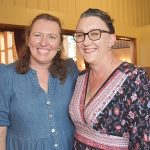

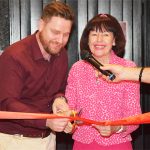

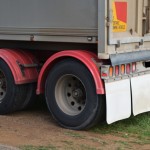

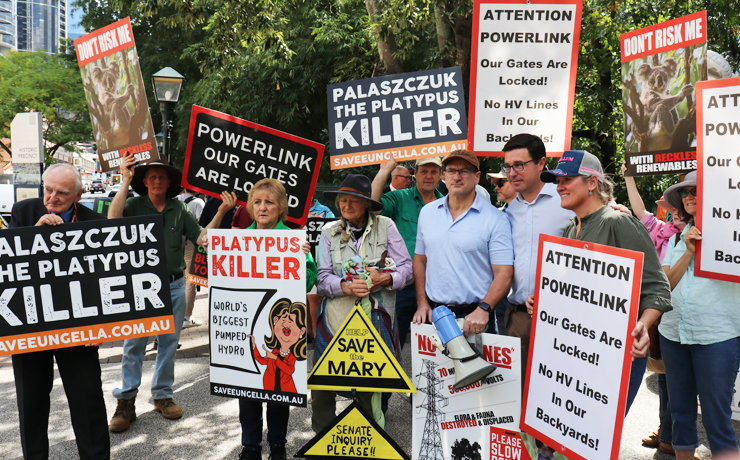
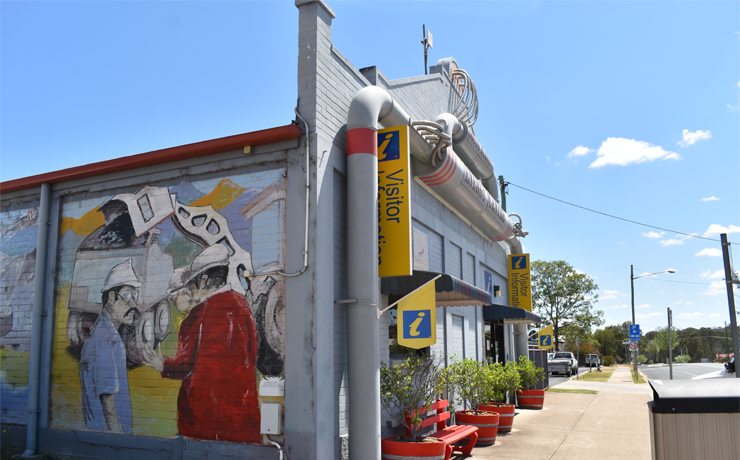




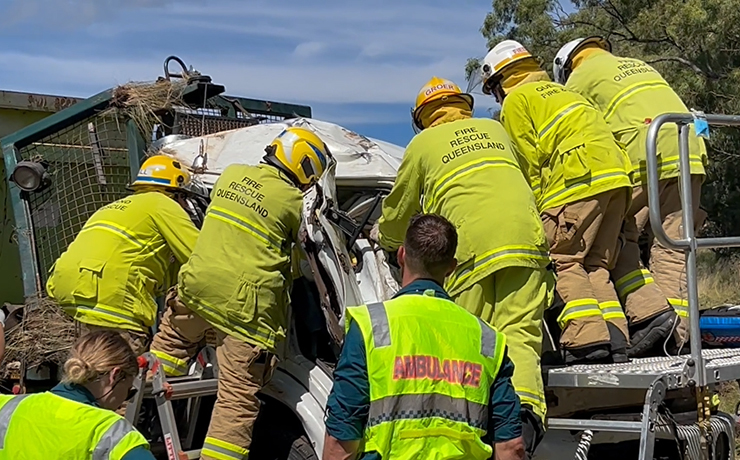


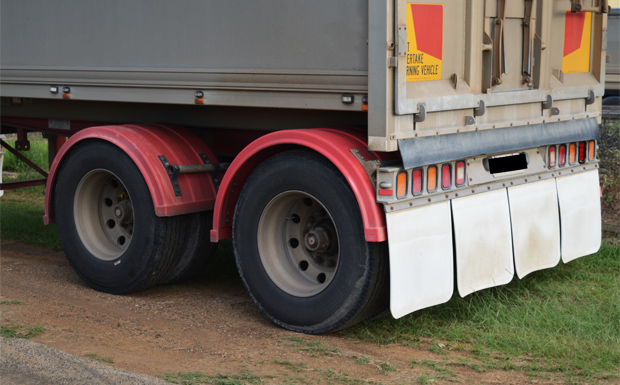
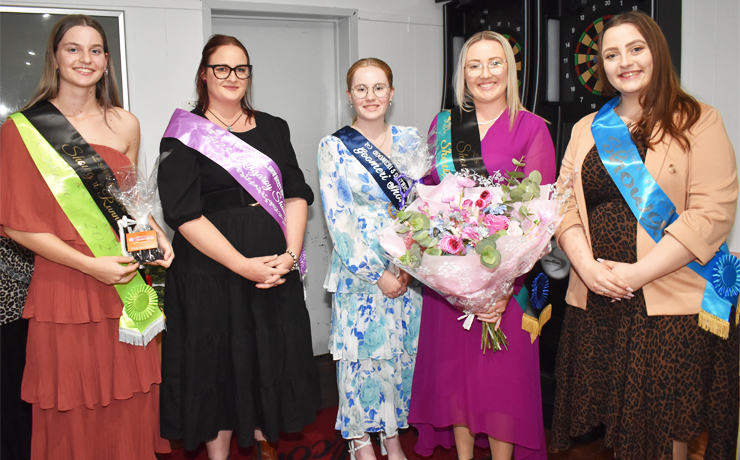
As you say “rare breed” that is one of the biggest reasons the hospital is closing. People in Kingaroy are not using the facility. The Mayor places blame on Qld Health, the hard working GPs of the South Burnett, the baddies Pulse Health and the QAS.
The facts stand that patients are not using the facility.
Is it a shame that it is closing, ABSOLUTELY, but is it surprising? NOT TO ME. Why keep pouring ratepayers’ money into a facility that is only used by an unsustainable number of the community?
You basically explained in your plea to keep it open why it is closing. Kingaroy people who have private health choose a better facility and food and bed over the convenience. It’s evident, as you state, you are a rare breed.
I am a ratepayer and have private health insurance but I wouldn’t use the private hospital and I would rather travel to Brisbane to quality facilities and my choice of specialist as that is the reason for private health. This community is telling council by the lack of numbers they don’t want a private hospital.
I agree the place only has 28 beds and sometimes only 10 or so are occupied. It’s a shame really but what else can we really do? Sad to lose all these specialist services and I hope they turn up somewhere else. Are they knocking the place down or is it just going to become another unsightly eyesore that no one can avoid?
I have also previously used this hospital and I agree with all that Bronwyn has said. I found the service, staff, nurses, doctors, specialists and Dr Jim Eadie to be great. It is a shame that Pulse health deem the hospital to be nonviable on a $$$ level.
Sometimes the Kingaroy Base Hospital does not have the capabilities to do what Private Hospitals can. The locals and Sth Burnett Regional Council should do all they can to keep this Private Hospital running. Why should we patients be forced to travel to Toowoomba or Brisbane for surgery that can be done here? I hope Deb Frecklington can be asked to support keeping this Private Hospital open here in Kingaroy.
It will be a sad day when and if this hospital closes, especially for oldies like me. My family and l have used it lots of times over many decades. It was great when our kids were young, we’d rock up there any old time with broken arms, split heads and what have you. The staff would call the doctor on duty. I remember one night the doctor turned up in overalls as he’d been painting a room. Those days are long gone of course, it’s now the 21st century and sadly our health system here has gone backwards.
Many thanks to all the wonderful doctors and nurses and other staff members who have worked at this hospital. l can’t thank you enough. l’ll be thinking twice about even getting treatment now, l hate city hospitals so much. Progress it’s called.